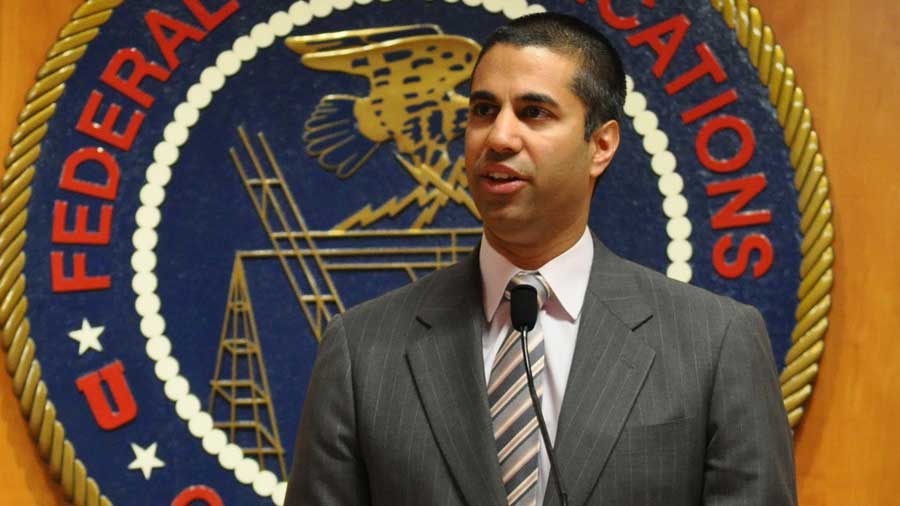Pai Pans ATSC 3.0 Framework Critics

The smarter way to stay on top of broadcasting and cable industry. Sign up below
You are now subscribed
Your newsletter sign-up was successful
FCC Chairman Ajit Pai has staked out a "lead, follow, or get out of the way" position on new technology that is clearly driving his regulatory view, including of critics of the FCC's proposals promoting next gen TV and migrating to fiber nets.
That came in a speech at the Reason Media Awards in New York, according to a copy of his prepared text.
"Whenever a technological innovation creates uncertainty, some will always have the knee-jerk reaction to presume it’s bad and demand that we do whatever’s necessary to maintain the status quo. Strangle it with a study. Call for a commission. Bemoan those supposedly left behind. Stipulate absolute certainty. Regulate new services with the paradigms of old," he told his audience. "But we should be wary of that temptation."
That wariness extends to those who have criticized the FCC's proposal for rolling out the voluntary adoption of a next gen ATSC 3.0 broadcast standard, he suggested. Those critics include computer companies, consumer advocates, and some cable operators who wanted the FCC to restrict how broadcasters could leverage those new signals in retrans negotiations for current channels, as well as Democratic Commissioner Mignon Clyburn, who is also concerned those negotiations might boost cable prices for consumers.
Related: ATSC 3.0 Decision Draws Some Critics
The FCC will vote next week on a framework for that rollout, which Pai points out "could let broadcasters offer much better service in various ways, from 4K video to immersive audio to advanced emergency alerts to better accessibility options for Americans with disabilities."
As to the "opponents" of that innovation, he said: "They dwell on the challenges inherent in any technological transition instead of embracing the benefits that innovation will bring. And they want to impose extensive government regulation that could strangle Next Gen TV in its infancy. To be sure, these opponents inherit a long tradition going all the way back to the late 19th century, when many denounced the development of the automobile. But this tradition is rooted in fear and opportunism, not freedom and opportunity."
He also included detractors of his proposal, also being voted next week, to speed the migration from copper to fiber nets. No one is saying that should not happen, but some of the "detractors" want to make sure support for legacy services is not abandoned in that transition.
The smarter way to stay on top of broadcasting and cable industry. Sign up below
Pai said of those detractors that "They refuse to let go of the past and stoke fears about the future. They also complain, ironically, that we don’t have enough Internet access or more competition—precisely what we’d get by ridding the rust from our regulations."
Pai told his audience he was "amused" that many who reject both proposals call themselves progressives. "What’s progressive about standing in the way of progress?"
Contributing editor John Eggerton has been an editor and/or writer on media regulation, legislation and policy for over four decades, including covering the FCC, FTC, Congress, the major media trade associations, and the federal courts. In addition to Multichannel News and Broadcasting + Cable, his work has appeared in Radio World, TV Technology, TV Fax, This Week in Consumer Electronics, Variety and the Encyclopedia Britannica.

